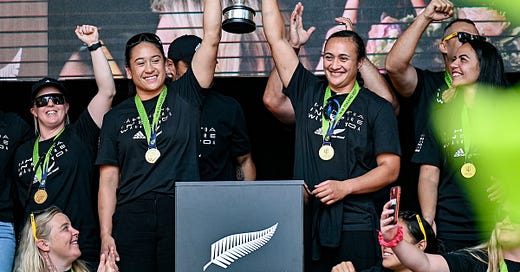The hard work starts now
Gains made must be kept, plus the All Blacks 22 minutes of good overcomes 58 minutes of rubbish... and more!
The All Blacks this morning came from six points down late in the game to snatch victory from Scotland and it was nowhere near the biggest rugby story of the weekend. Not even in the same ballpark.
If watercooler conversations hadn’t been ruined by Covid and the subsequent work-from-home age, there’d be one topic this morning and it …
Keep reading with a 7-day free trial
Subscribe to The Bounce to keep reading this post and get 7 days of free access to the full post archives.




